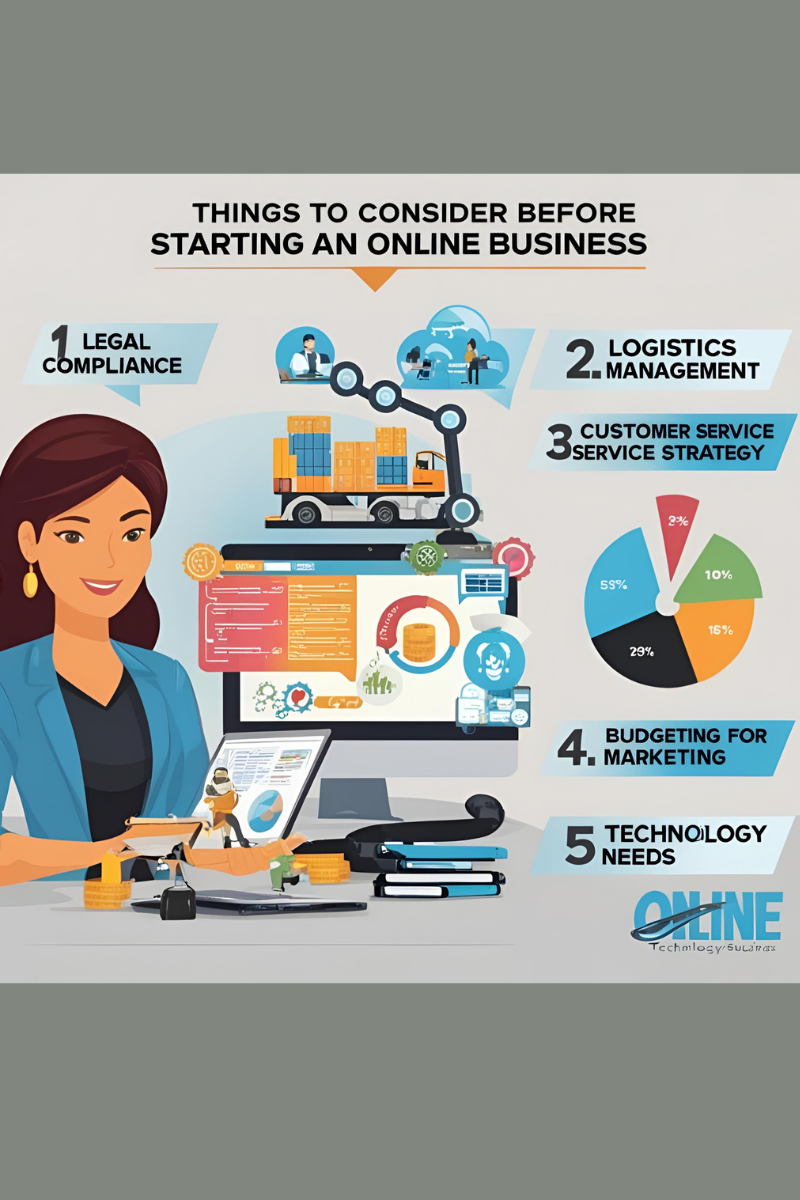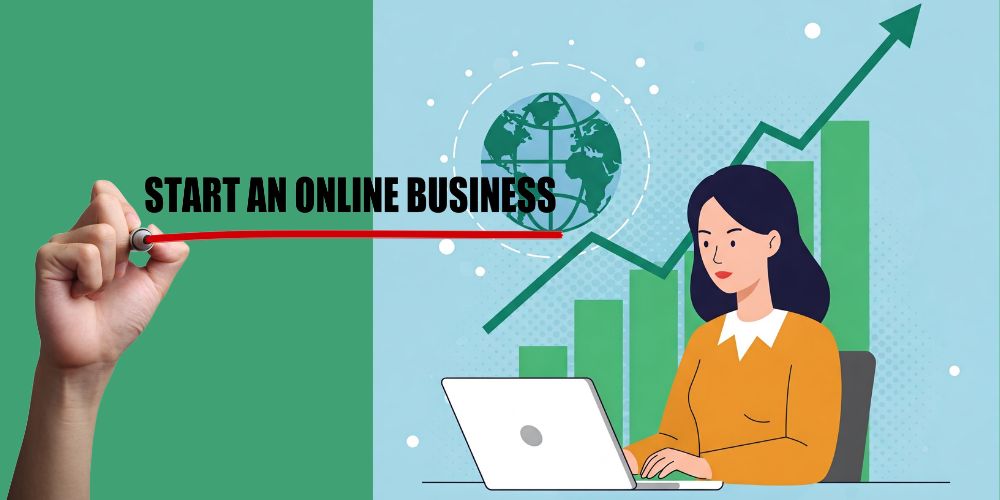How to Start an Online Business: A Complete Guide for Small Business Owners
The world of e-commerce has opened up endless opportunities for small business owners to grow and thrive. Whether you’re looking to expand your existing business or start from scratch, going online can help you reach a wider audience, reduce costs, and scale faster. But where do you begin? In this guide, we’ll walk you through the benefits of e-commerce, steps to start your online business, and key factors to consider before launching.
Why Should Small Businesses Go Online?
Starting an online business offers numerous advantages for small business owners. Here’s why it’s worth considering:
1. Lower Operational Costs
Running an online store eliminates the need for physical storefronts. You save on rent, utilities, and maintenance costs, allowing you to invest more in marketing and product development.
2. Reach a Global Audience
Unlike traditional brick-and-mortar stores, e-commerce enables you to sell products worldwide. Your market isn’t limited by geography anymore—customers from different regions can access your store 24/7.
3. Operate Around the Clock
An online store never sleeps! You can make sales even while you’re asleep or on vacation, providing convenience for customers and boosting revenue.
4. Gain Valuable Insights
E-commerce platforms come with analytics tools that help you track customer behavior, popular products, and sales trends. These insights allow you to make data-driven decisions and optimize your offerings.
5. Scale Easily
Scaling an online business is simpler than expanding a physical store. You can add new products, target new demographics, or even enter international markets without significant overhead costs.
Steps to Start Your Online Business
Starting an online business might seem overwhelming at first, but with the right approach, it can be a smooth process. Follow these steps to get started:
Step 1: Find Your Niche
Identify a specific market segment that aligns with your interests and expertise. Look for gaps in the market or underserved customer needs that your products or services can fulfill.
Step 2: Conduct Market Research
Understand your target audience’s preferences and analyze competitors in your niche. Use tools like Google Trends or social media insights to gather data on consumer behavior.
Step 3: Create a Business Plan
A solid business plan is essential for success. Outline your goals, revenue model, marketing strategies, operational plans, and financial projections.
Step 4: Register Your Business
Choose a legal structure (e.g., sole proprietorship or LLC) and register your business name. Make sure to obtain any necessary licenses or permits based on your location and industry.
Step 5: Build Your Online Store
Choose an e-commerce platform (e.g., Shopify or WooCommerce or Quicshop) that suits your needs.
Select a memorable domain name that reflects your brand.
Add high-quality product images and detailed descriptions to attract customers.
Ensure your website is mobile-friendly and easy to navigate.
Step 6: Set Up Payment Processing
Integrate secure payment gateways like PayPal or Stripe so customers can pay easily using their preferred method.
Step 7: Develop a Marketing Strategy
Promote your store using social media ads, email campaigns, search engine optimization (SEO), and influencer partnerships. Consider offering discounts or giveaways during launch week to attract customers.
Step 8: Launch Your Store
Announce your launch on social media platforms and through email newsletters. Create excitement by sharing teasers or hosting virtual events.
Step 9: Monitor Performance
Use analytics tools provided by your e-commerce platform to track sales performance, website traffic, and customer feedback. Adapt your strategies based on what works best for your audience.
Things to Consider Before Starting an Online Business
Before diving into e-commerce, take some time to evaluate these critical factors:
1. Legal Compliance
Understand tax obligations (e.g., GST), privacy policies, terms of service requirements, and other regulations specific to your industry and location.
2. Logistics Management
Plan how you’ll handle shipping, inventory management, returns, and refunds efficiently. Partnering with reliable fulfillment services can simplify this process.
3. Customer Service Strategy
Develop a system for responding promptly to customer inquiries or complaints via email, chat support, or social media channels.
4. Budgeting for Marketing
Allocate sufficient funds for marketing efforts like ads on Google or Facebook. Visibility is crucial when starting out!
5. Technology Needs
Ensure your website has robust security measures (SSL certificates), fast loading speeds, and reliable hosting services for uninterrupted performance.

Final Thoughts
Starting an online business is an exciting journey filled with opportunities for growth and success. By leveraging the benefits of e-commerce and following the steps outlined above, small business owners can create thriving online stores that cater to modern consumers’ needs.
Remember that preparation is key—invest time in market research, planning, and building a strong foundation before launching your store. Once live, focus on delivering excellent customer experiences while continuously optimizing your operations based on insights from analytics tools.
Are you ready to take the leap into e-commerce? If you found this guide helpful, don’t forget to share it with other aspiring entrepreneurs who might benefit from it.
